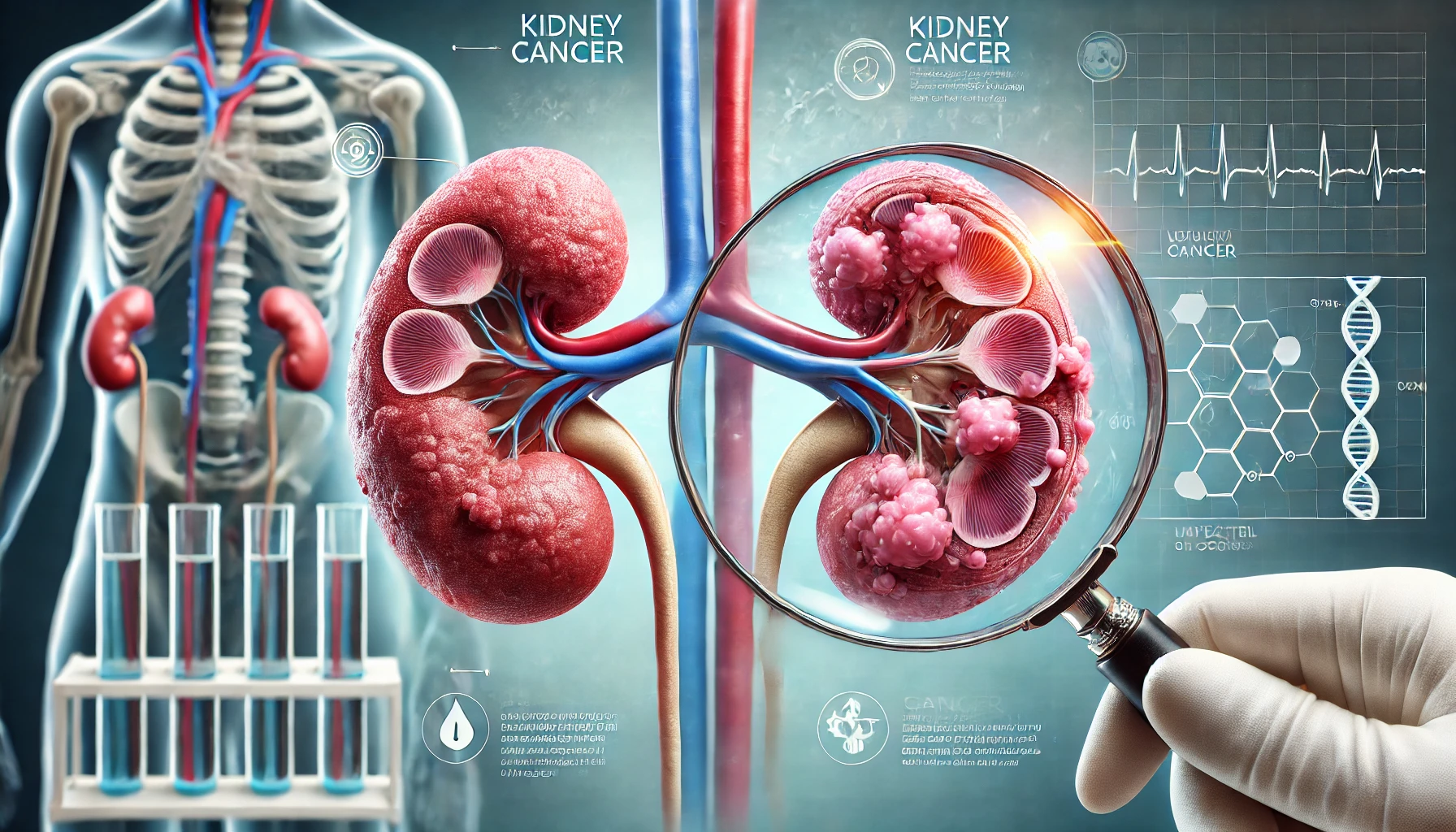This post was written with Consensus AI Academic Search Engine – please read our Disclaimer at the end of this article. The prognosis for kidney cancer is highly dependent on the stage at diagnosis and other individual factors. Early-stage kidney cancer generally has a favorable prognosis with surgical intervention, while advanced-stage disease requires more complex treatment strategies, including targeted therapies and immunotherapies. Prognostic models and risk stratification systems are valuable tools in predicting outcomes and guiding treatment decisions.
Stages of Kidney Cancer
Kidney cancer, also known as renal cell carcinoma (RCC), is typically classified into stages based on the size of the tumor and the extent of its spread. The American Joint Committee on Cancer (AJCC) TNM staging system is commonly used, which considers Tumor size (T), involvement of lymph Nodes (N), and Metastasis (M).
- Stage I: The tumor is confined to the kidney and is 7 cm or smaller in diameter.
- Stage II: The tumor is larger than 7 cm but still confined to the kidney.
- Stage III: The tumor has spread to nearby lymph nodes or has grown into major veins or tissues around the kidney but not to distant organs.
- Stage IV: The cancer has spread to distant lymph nodes or other organs (metastasis)1 3 4.
Prognosis for Kidney Cancer
The prognosis for kidney cancer varies significantly depending on the stage at diagnosis, histological subtype, and other patient-specific factors.
Early-Stage Prognosis
For early-stage kidney cancer (Stages I and II), the prognosis is generally favorable. Surgical removal of the tumor, often through nephrectomy, is the primary treatment. Prognostic models, such as nomograms, have been developed to predict overall survival (OS) and cancer-specific survival (CSS) for patients with early-onset kidney cancer (EOKC). These models consider factors like age, race, tumor grade, and TNM stage, and have shown high predictive accuracy with concordance indices (C-index) of 0.855 for OS and 0.938 for CSS1.
Advanced-Stage Prognosis
For advanced-stage kidney cancer (Stages III and IV), the prognosis is more guarded. Treatment options include targeted therapies and immunotherapies. For instance, the CABOSUN trial demonstrated that cabozantinib significantly improved progression-free survival (PFS) compared to sunitinib in patients with intermediate or poor-risk metastatic RCC, with median PFS of 8.6 months versus 5.3 months, respectively2. Similarly, the CheckMate 214 trial showed that nivolumab plus ipilimumab improved overall survival and health-related quality of life compared to sunitinib in patients with intermediate or poor-risk advanced RCC5 8.
Prognostic Factors
Several factors influence the prognosis of kidney cancer:
- Histological Subtype: Papillary RCC (pRCC) is a subtype with distinct prognostic factors. A nomogram developed for pRCC patients post-nephrectomy identified age, race, TNM stage, and tumor size as significant predictors of overall survival6.
- Risk Stratification: The International Metastatic Renal Cell Carcinoma Database Consortium (IMDC) criteria and the Memorial Sloan Kettering Cancer Center (MSKCC) risk groups are commonly used to stratify patients and predict outcomes. These criteria consider factors like performance status, time from diagnosis to metastasis, and levels of hemoglobin, calcium, and lactate dehydrogenase7 9.
- Treatment Response: The efficacy of treatments like immunotherapy and targeted therapy can vary. For example, the ASPEN trial found that sunitinib improved PFS compared to everolimus in patients with metastatic non-clear cell RCC, highlighting the importance of personalized treatment approaches10.
Disclaimer
The content presented in this blog is generated by Consensus, an AI-powered academic search engine, and is based on publicly available scientific literature. While every effort is made to provide accurate, up-to-date, and well-researched information, the content is intended for informational and educational purposes only. It does not constitute medical advice, diagnosis, or treatment. Always consult a qualified healthcare professional before making any decisions regarding medical conditions, treatments, or medications. The AI system’s analysis may not cover all perspectives, emerging research, or individual cases, and it is not a substitute for professional expertise. Neither the blog publisher nor the developers of the AI-powered search engine are responsible for any actions taken based on the information provided in this content. Use of this information is at your own risk. Citations to the original scientific studies are included for reference, but these studies should be reviewed in full and interpreted with the guidance of a healthcare or research professional.
If you are experiencing a medical emergency, please seek immediate attention from a healthcare provider.
